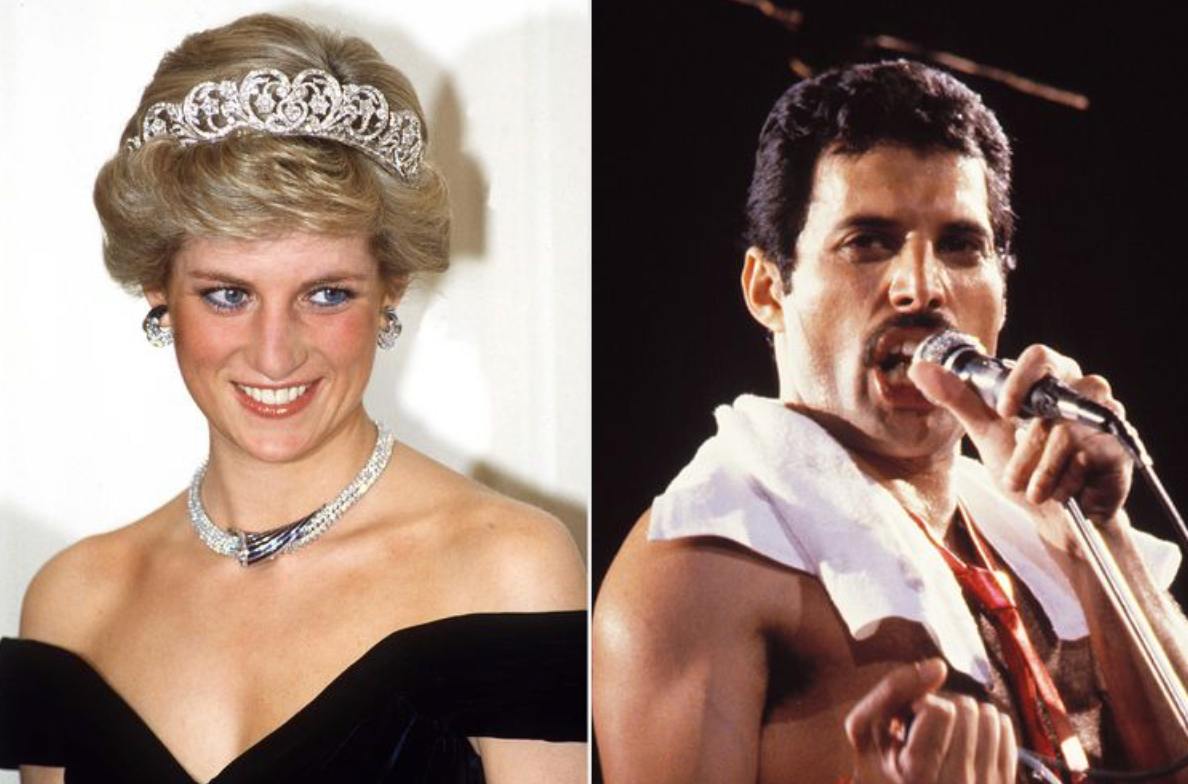Princess Diana’s reputation continues to enthrall decades after her death, and a new biography delves into the iconic night she disguised herself to enter a London homosexual bar with Queen leader Freddie Mercury.
In Dianaworld: An Obsession (coming April 29), Edward White delves into the late Princess of Wales’ life, legacy, and continuing effect as a global icon.
The vivid biography paints a picture of the Princess of Wales that the world did not know, ranging from her Spencer family’s generations of connections to the British royals before her marriage to the future King Charles to her lesser-known ambitions for her private life after their divorce, before her death in a car accident in Paris at the age of 36 in 1997.

In Diana’s mythology, furtive midnight action is significant because it represents occasions when she unveiled concealed elements of her actual personality. At boarding school, she would slip out of her room to execute a dare or practice her dance alone in the school hall. At other times, she would plunder kitchen fridges in search of the temporary comfort that binge eating provided. And evening provided the chance of reinvention and anonymous adventure, with the most well-known example being Diana’s purported visit to one of London’s most famous homosexual clubs.
In her autobiography, actress Cleo Rocos remembers an evening she spent with Kenny Everett, Freddie Mercury, and Diana, whom she had met in the late 1980s. According to Rocos, Diana convinced them to take her to the Royal Vauxhall Tavern, despite Everett’s warning that it was “not for you…full of hairy gay men.” Diana was adamant, so Everett helped her disguise herself in male drag: “a camouflage army jacket, hair tucked up into a leather cap, and dark aviator sunglasses.” We concluded that the most renowned symbol of the contemporary world may pass for a very eccentrically dressed homosexual male model when scrutinizing her in the half-light.

It appeared to work. “It was fabulously outrageous and so bizarrely exciting . . . no one, absolutely no one, recognized Diana.” They remained for one drink and departed. Diana returned to Kensington Palace and returned Everett’s clothing the next day.
The account seems unbelievable, like one of the numerous fictitious tales of royal metamorphosis that populate folklore and fairy tales. Shakespeare’s portrayal of Diana in the homosexual club, where a female disguised as a boy enters a magical realm, is also reminiscent of the story. Other, less imaginative, stories about Diana disguising herself on evenings out include accompanying Hasnat Khan to Ronnie Scott’s jazz bar in Soho, where the princess hid her true self under a wig and spectacles.
These are extreme Diana variations on classic clichés about royal and aristocratic ladies discovering themselves while disguised in the unfamiliar settings of London at night. Even Elizabeth II has a story of how she and Margaret went out into the city masses to celebrate the end of WWII, which was greatly romanticized as an excursion into London’s illegal underbelly in the 2015 film A Royal Night Out.

Regardless of its reality, Diana’s appearance in drag at the Royal Vauxhall Tavern has been used as an example of her connection to the LGBT community, as well as a metaphor for her own yearning for a family in which she felt fully embraced.
Desmond O’Connor, who composed the cabaret musical Royal Vauxhall based on Diana’s night out, shares this attitude. The composition of O’Connor’s musical occurred in the mid-2010s, coinciding with a string of iconic London homosexual establishments going out of business, and it was believed that the Royal Vauxhall Tavern might be next. It struck O’Connor as a compelling topic that linked Diana’s life to the realities of London’s LGBT community: both required someplace where they could be themselves.

Diana may have had the opulent mansions of Kensington Palace, Highgrove, and Althorp at her disposal, but Royal Vauxhall claims that each was a gilded prison where only her material demands could be entirely fulfilled.
For at least one night, she might find herself assuming the identity of someone else.
Excerpted from Dianaworld: An Obsession. Edward White holds the copyright until 2025. The publisher, W. W. Norton & Company, Inc., has granted permission for this use. All rights are reserved.
On Tuesday, April 29, Dianaworld: An Obsession will be available.
